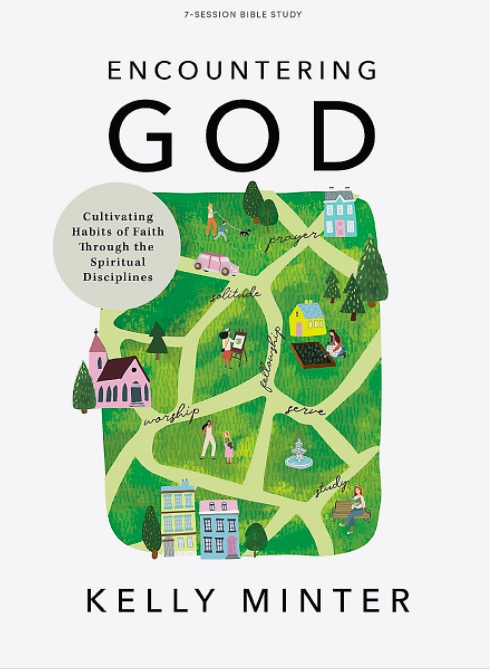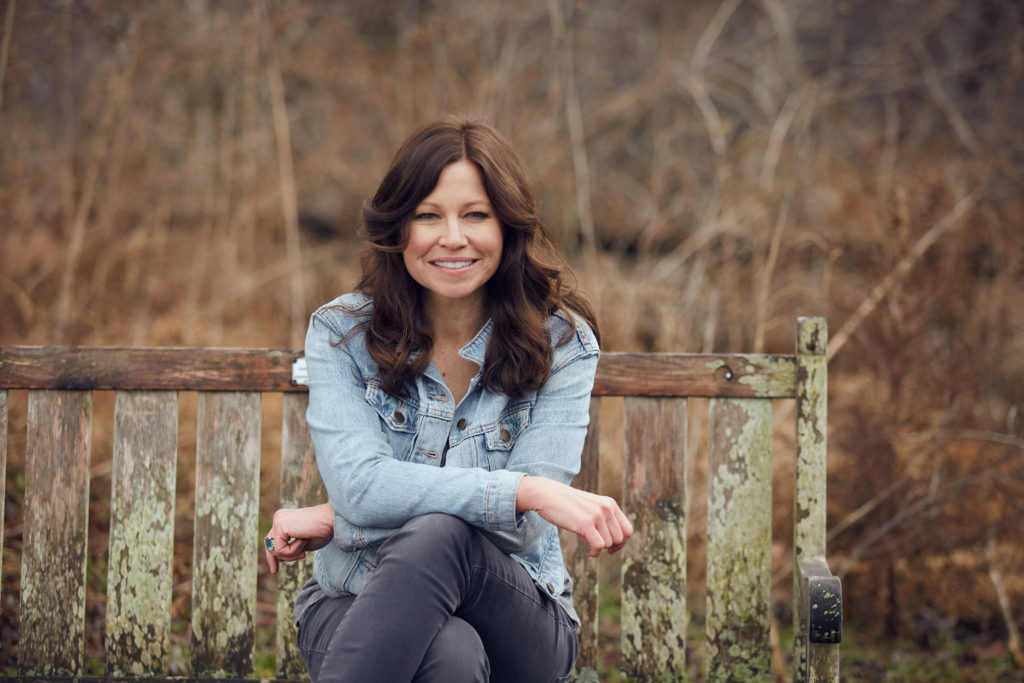This article will appear in the January 2022 issue of HomeLife Magazine. Click here to order your copy!
I had a moment of irony while writing this article. My morning had gotten off to a late start. I hadn’t slept well and thus slept too long. My alarm tore me out of a deep sleep. I glanced at the clock, and without having lived a conscious moment of the day I was already . . . behind. I pressed my coffee, packed my lunch, stuffed all my books into my backpack, and raced out of the house to the office. Writing this article was on the top of my list among multiple other tasks. After returning a few emails and sending a few texts, I opened up a clean document on my computer. I punched out the opening sentence about the importance of spiritual disciplines, but before I could format the sentence, I thought, Kelly, you’ve gone without any of the disciplines today.
What followed was a quick and decisive decision to close my computer, grab my Bible, and move to the reading chair in my office. In the past, this may have felt like a legalistic chore, especially in light of a flurry of tasks I needed to check off my list. But today’s decision came fairly easy for me. Not because I’m so spiritual, but because I know how spiritual I’m not. I need to be in the presence of God, whether in Scripture meditation, prayer, worship, journaling gratitude, interceding for others. If I’m not regularly experiencing the presence of Christ, I will only have a limited and largely uninspiring portion to offer others. And, perhaps more significant, I will slip into being a worn out and irritable doer for God instead of a child who delights in His presence.
I settled into my chair and started reading 1 Kings 2–3. I sipped my coffee and took a moment to ponder Scripture in God’s presence. I read about God’s plan for Solomon, the wildly unhealthy and divisive relationships between David’s sons, and how Solomon followed the Lord but also held onto the high places of pagan sacrifice. I wondered what contradictions lived in my own heart and activities.
I also noticed for the first time that the wisdom Solomon asked the Lord for was wisdom in matters of justice. He wanted to be able to rightly govern the people of Israel. It wasn’t just that Solomon was super clever or had great leadership insight. Rather, God had given him a keen understanding for how to make righteous decisions that would prosper Israel. This gave me much to ponder when I consider the reasons I often pursue wisdom. I then leaned my head into my hands for prayer. I was tired. But I communed with the energy I had on a less than ideal morning for all its busyness and lack of time. My efforts weren’t noble or valiant by a long shot, but in the smallest way I felt like Mary of Bethany, who declined the urgent for that which would never be taken from her — time spent with Jesus. (See Luke 10:42.)
Fuel to the Fire
To be sure, the spiritual disciplines aren’t all about times of quiet in the morning set aside for Bible reading and prayer. We’re also to practice disciplines of service, generosity, rest, fasting, accountability, celebration, and more. Both the inward and outward disciplines fuel one another. We need times of being restored in His presence, as well as intentional times of pouring into others. Together, these symbiotic disciplines make up the heartbeat of my most recent Bible study, Encountering God: Cultivating Habits of Faith through the Spiritual Disciplines.
Perhaps just the word discipline makes you want to sprint for the hills. Don’t we all have enough to do already? Can’t we just breathe? I understand this. We’re absurdly busy and life is a world-class jockey making us gallop to the pace of its whip. We want a nap, not more disciplines. But what I’ve discovered is that practicing the spiritual disciplines actually creates additional margin in our lives, because it is through the disciplines that we become more aware of what God has called us to do and what is mere distraction. They’re designed to instill peace, communion, and rest for our souls. So, the question is, what if we’re not out of time, but our priorities are just out of whack?
One of my hopes for this study is that you will find the spiritual disciplines to be liberating instead of cumbersome. We naturally think that piling on another activity will only burden us further, yet practicing the disciplines daily reminds us that it’s God we submit to, not life’s relentless demands. This will require some effort on our part but anything of value typically does. While absolutely nothing can be accomplished outside of God’s grace and His Spirit, I sense we’ve adopted the misleading notion that we’re supposed to work hard for all the “normal” things in our natural life, but our spirituality is supposed to just somehow happen. You know, by the power of the Spirit. We want God to transform us into His image. We want to sin less and serve more. We want to live generously, and let go of our anger, and cease worrying, and have more peace, but we want God to simply snap His fingers and will it into existence.
God is more relational than simply imparting spiritual maturity to His children in a snap. He instead invites us to participate with Him toward an end of Christlikeness. So often, though, we don’t know how to participate with Him or where to begin on this journey. We hope to achieve spiritual maturity the way Elisha scooped up Elijah’s mantle that had literally fallen out of the sky. (See 2 Kings 2:1-13.) But when we go to Scripture, when we go to church history, we see that God invites our effort, our activity, our doing certain things in order to participate in our transformation. I fear that in our desire to rightly emphasize a godly posture of being we have left out the biblical necessity of doing. This is where the spiritual disciplines come in.
Our Place of Stuckness
In his book, The Ruthless Elimination of Hurry, John Mark Comer says, “A discipline is any activity I can do by direct effort that will eventually enable me to do that which, currently, I cannot do by direct effort.” I remember practicing certain chords on the guitar over and over and over until one day my fingers finally got there without me having to think about it. In fact, I could change from chord to chord while my other hand strummed in time. The direct effort I put into practicing my guitar eventually turned into me being able to play chords without much effort, ones I formerly couldn’t play. This idea translates into our lives as followers of Christ. The spiritual disciplines of solitude, prayer, Bible study, simplicity, worship, celebration, and more, train us to do what we previously couldn’t do as it relates to being conformed into the image of Jesus. The spiritual disciplines invite us, by God’s grace, to change. They give us hope in our place of stuckness.
If you’re new to the idea of spiritual disciplines, the key is to not get overwhelmed. Not all the spiritual disciplines can, or should be, practiced all at once. If we rested all the time, we’d never serve anyone. If we only studied Scripture, we wouldn’t have time for prayer. And if we focused only on simplicity, when would we ever celebrate with a five-course meal we made from scratch?
So, there are times and places for each of the disciplines. Some will be daily habits, such as Bible study, meditation, prayer, and worship. Others will be practiced at special times or in certain seasons, like when we fast, serve on a mission trip, or enter into solitude. Most of the spiritual disciplines are so closely related it’s hard to know where one stops and the other begins. As we move in and out of the disciplines, it’s less like turning off one road and onto another, and more like a road changing its name in the middle of the one we’re already on. They’re all part of the same path and they all lead to the same Person, Jesus.
One of the best ways to become better acquainted with the spiritual disciplines is to learn what the Bible has to say about them. A biblical survey will give us the why behind these life-giving practices, which will inspire us toward implementing them in our daily lives. In addition, we’ll discover that all those things about ourselves we think are impossible to change, really can change. We’re not stuck. God has given us the gift of discipline, which is really an invitation to participate with Him in our sanctification.

Join Kelly Minter as she unpacks the biblical foundation for these sacred habits along with approachable ways to practice disciplines like prayer, study, worship, rest, simplicity, generosity, celebration, and many more in her new Bible study, Encountering God (available November 1, 2021).

Kelly Minter is passionate about teaching the Bible. When she’s not singing, writing, or speaking, you can find her picking homegrown vegetables, enjoying her six nieces and nephews or riding a boat along the Amazon river with Justice & Mercy International. A Southern transplant, she delights in college football, long walks, and a diner mug of coffee with her closest friends.

